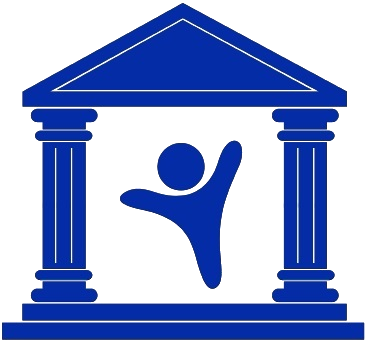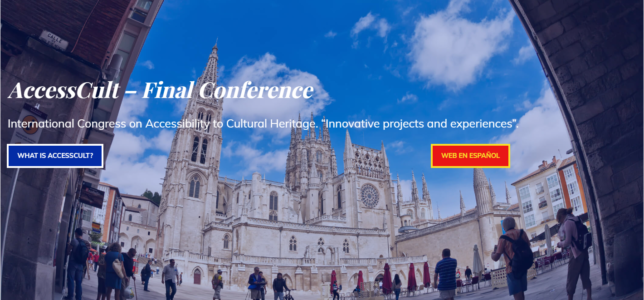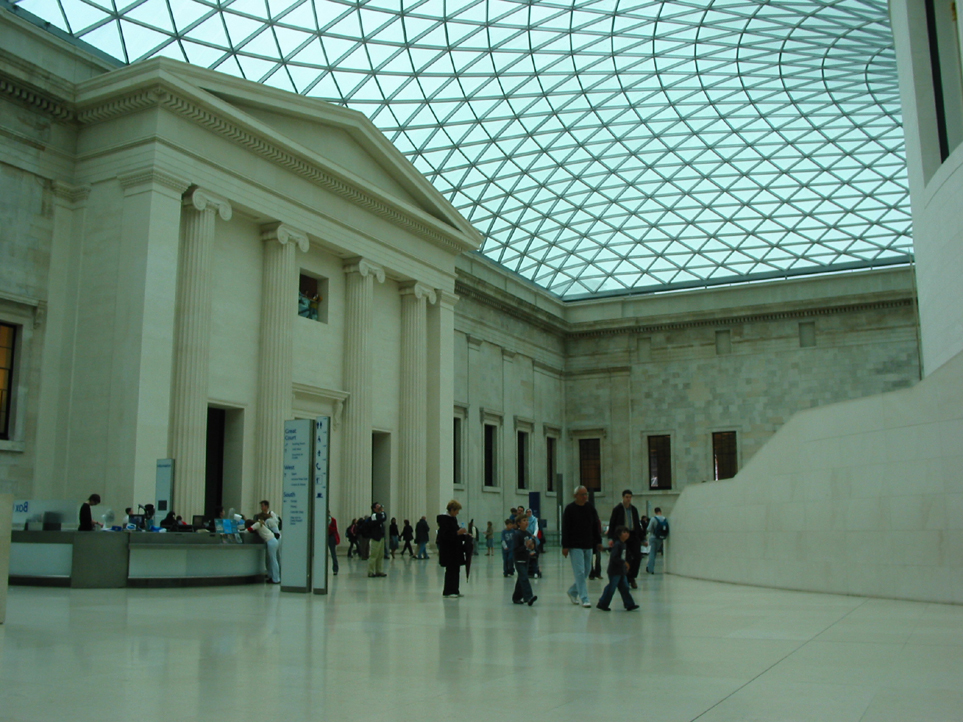On Saturday, February 25, 2023, at the Faculty of Health Sciences in Burgos (Spain), the multiplier event 5 entitled “MULTIPLIER EVENT / FINAL INTERNATIONAL CONFERENCE: “Innovative Higher Education innovative higher education teaching content to achieve sustainable ACCESSIBILITY of CULTURAL HERITAGE for ALL” (“EVENTO MULTIPLICADOR/CONFERENCIA INTERNACIONAL FINAL: “Contenidos innovadores de enseñanza de educación superior para lograr la ACCESibilidad sostenible del patrimonio CULTural para TODOS”) was organized by University of Burgos.
To this end, an International Congress called “International Congress on Accessibility to Cultural Heritage. Projects and innovative experiences” (“Congreso Internacional sobre Accesibilidad al Patrimonio Cultural. Proyectos y experiencias innovadoras”) in which the presentation of all the IOs of the Accesscult Project was carefully planned, in addition to having some invited lectures and the presentation of oral communications and posters by some of the participants; all of them related to the contents of the AccessCult Project.
AIM: The aim of the Final International Conference was to present the main project results to the widest audience possible and to focus on discussion about possibilities for exploitation after the end of the project lifetime. An important element of the event was also an evaluation of the work done and implementation of satisfaction survey among partners and other participants of the conference.
The Final International Conference was organized in Spain by University of Burgos (P1) together with Spanish partner INFAD (P2) as well as in cooperation with the associated partners, museums and galleries.
It was organized together with the Final partner meeting in the last (30th) month of the project: February 2023. Together they lasted 3 days; 23rd and 24th for Final partner meeting and 25th for Final International Conference. English and Spanish were the official languages of the conference.
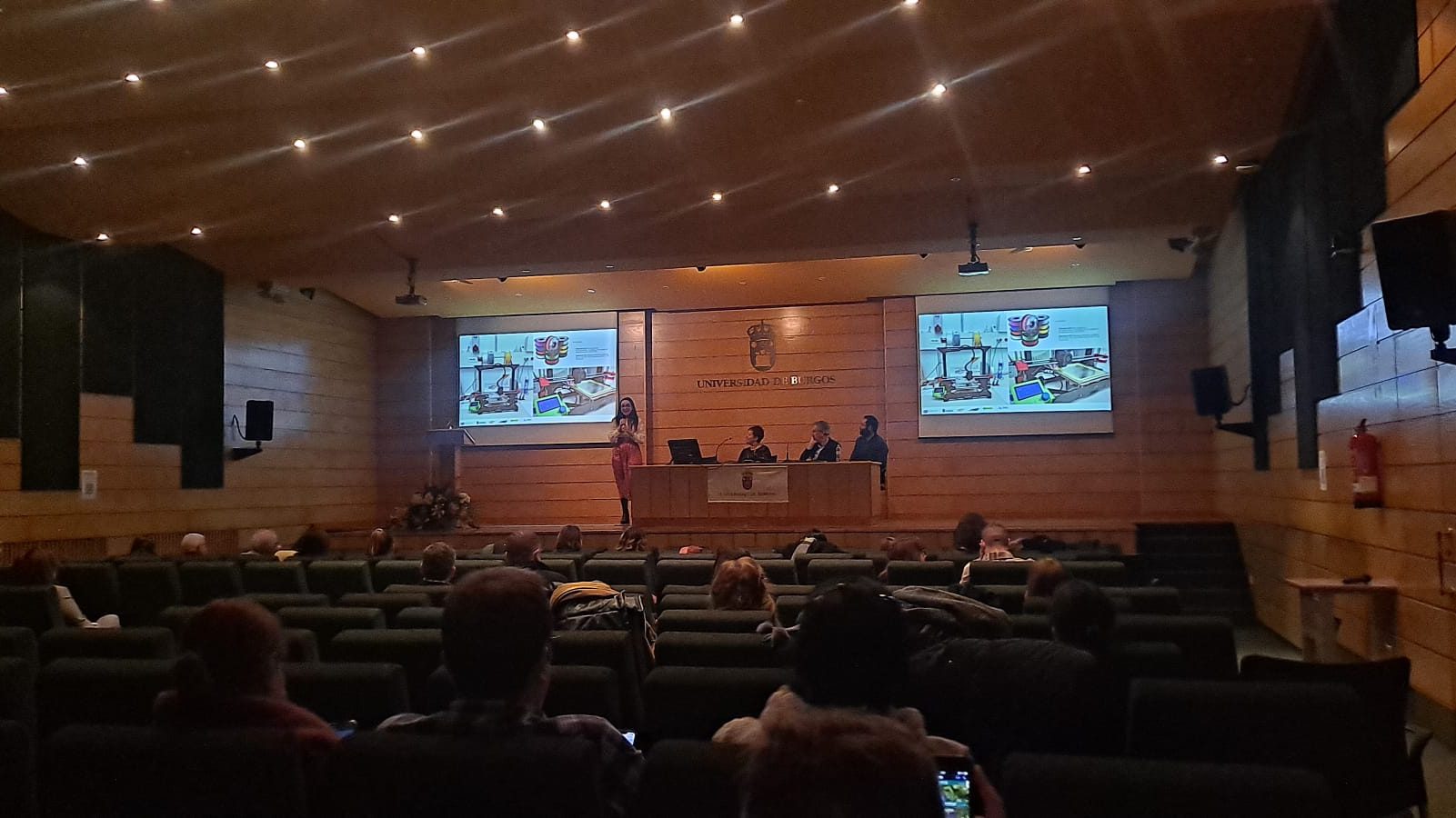
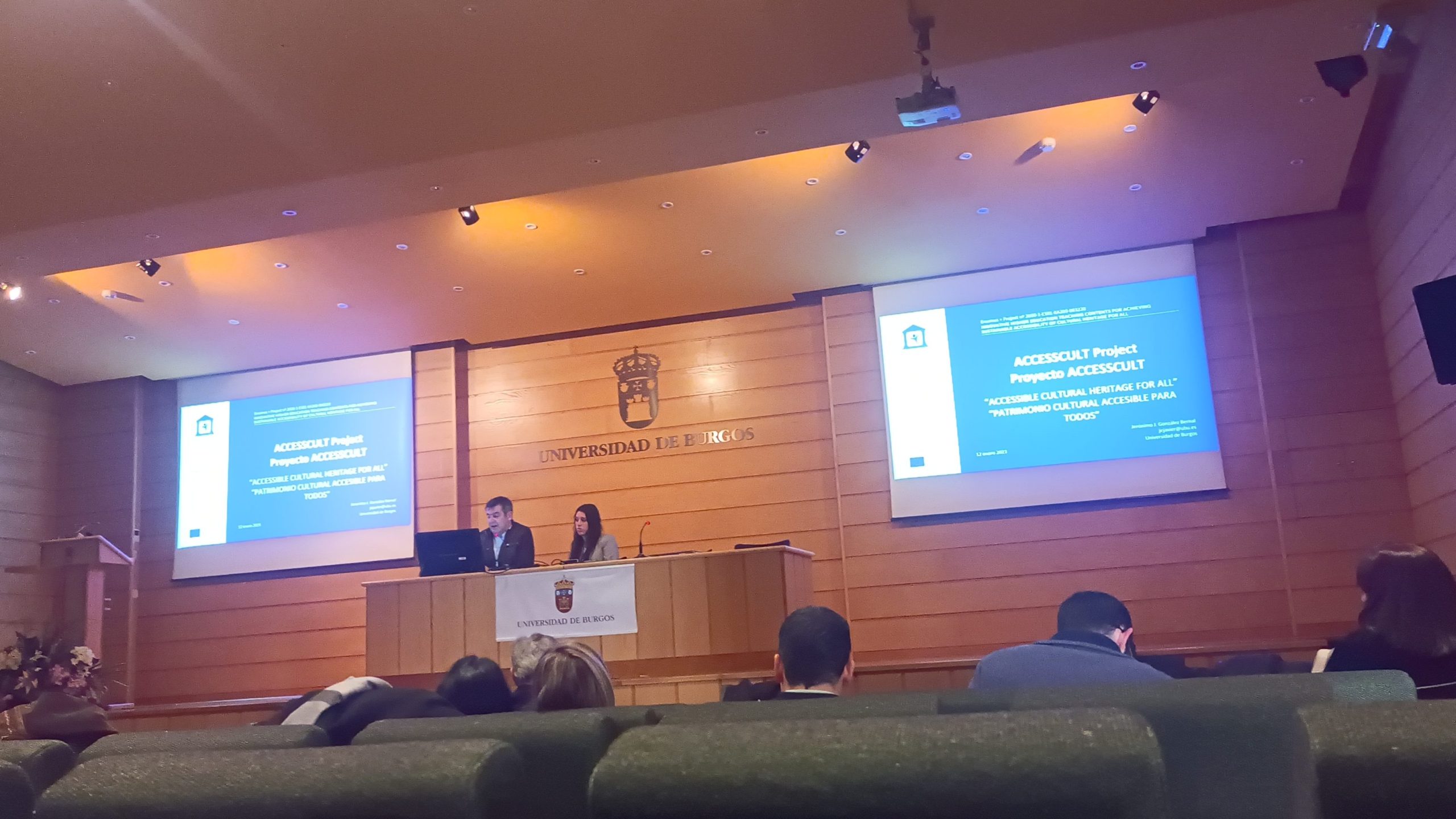
For the organization of the agenda, we contacted the associative and cultural fabric based on the dissemination that we had already begun to form the Network of Ambassadors. Some examples of good practices related to the project were selected and they were invited to take part in the conference. The agenda included all the IOs of the Accesscult project, so that they could be presented and discussed with the participants at length during the day.
Speakers from the Educational and Cultural sector, as well as System and Policy makers participated both with their presence as listeners and with the presentation of invited papers, posters and oral communications.
Based on the previous experience of ME1, in which attendance was lower than expected, several measures were taken (previously planned in light of the results of ME1) to work more on attracting participants:
All partners contributed to the organization and dissemination of the conference.
Sixty eight (68) people were registered, through the Final Conference Website (section whithin theAcesscult website) on the list of participants with their personal information and signature. Among them, 9 people belonged to the University of Burgos and 1 to the University of Ljubljana, so they were not eligible for this ME5. Therefore, the eligible participants were 58.
National/international participants (out of 58 eligible):
- Nationals: 40
- Foreigners: Total 18
- 1 Portugal
- 1 Colombia, 1 Mexico and 15 Chile: from a group of people from Latin America who were in Burgos those days in a meeting as part of the “Training project in Neuroeducation and creativity as inclusive strategies”.
Among these 68 people, there were 3 who did not complete the satisfaction survey although they were requested several times.
The profile of all participants (68 people, but some meet several criteria), according to the criteria established in the project, was:
- Cultural workers: 7
- Universities: 32
- Project partners: 10
- PWD: 4 (known)
- PWD representatives/associations/workers: 28
- Policy making institutions: 2
